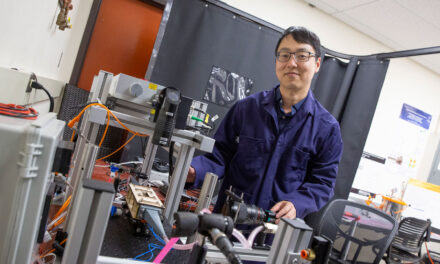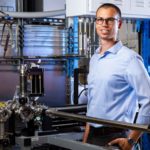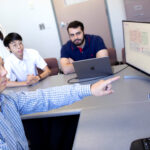
Engineering students lead winning teams at 2011 Innovation Challenge
Engineering students led seven winning teams in ASU’s 2011 Innovation Challenge, where students compete for funding for entrepreneurial endeavors that focus on innovative ways to help communities on local or global scales—through new product development, business ventures or community service partnerships.
More than 150 teams applied to compete in the 2011 Innovation Challenge. Of the 30 selected as finalists to present their plans to a panel of judges, 11 teams were led by Fulton Engineering students.
Sixteen teams were awarded funding. The seven led by engineering students are:
bioSPY is developing a proof-of-concept in a sound business model based on a healthcare need for peptide-enhanced medical devices that confer the specificity required in the administration of personalized medicine. ($4,880 grant)
Augmented Innovations creates a novel computer interface for doctors to be able to access and interact with patient data technologies in sterile environments. ($2,500 grant)
SP2 Energy has developed a unique solar power generator and is collaborating with another Innovation Challenge award winner, Project L.O.C.A.L., to provide power for their container clinic. ($2,000 grant)
Project L.O.C.A.L. is developing a facility out of a retired shipping container that provides a safe and clean place to give birth; the team is also collaborating with U.S.-based doctors to develop a training program for practicing African midwives to prevent deaths by hemorrhage, sepsis, obstructed labor and hypertensive diseases. ($2,000 grant)
Doc-in-a-Box is the solution to meet the need for mobile medical clinics in disaster areas, while at the same time recycling unused shipping containers. ($1,500 grant)
Multiplexed Diabetes Management (MDM) is a transformative technology with long-term impact in diabetes care. ($1,500 grant)
Project Upepo seeks to focus sustainable technology to produce meaningful change by combining education, employment and electrification via wind technology. ($1,500 grant)


































